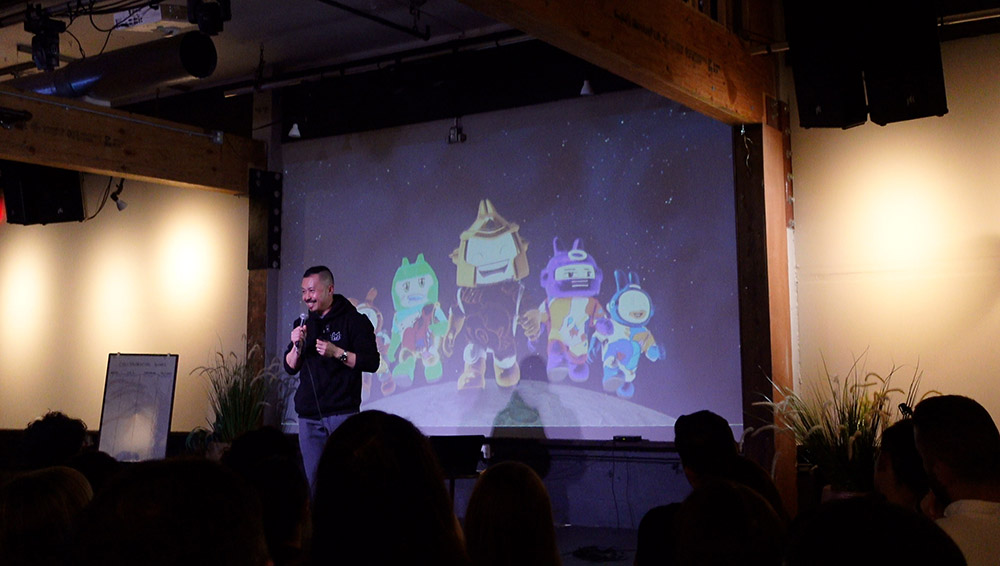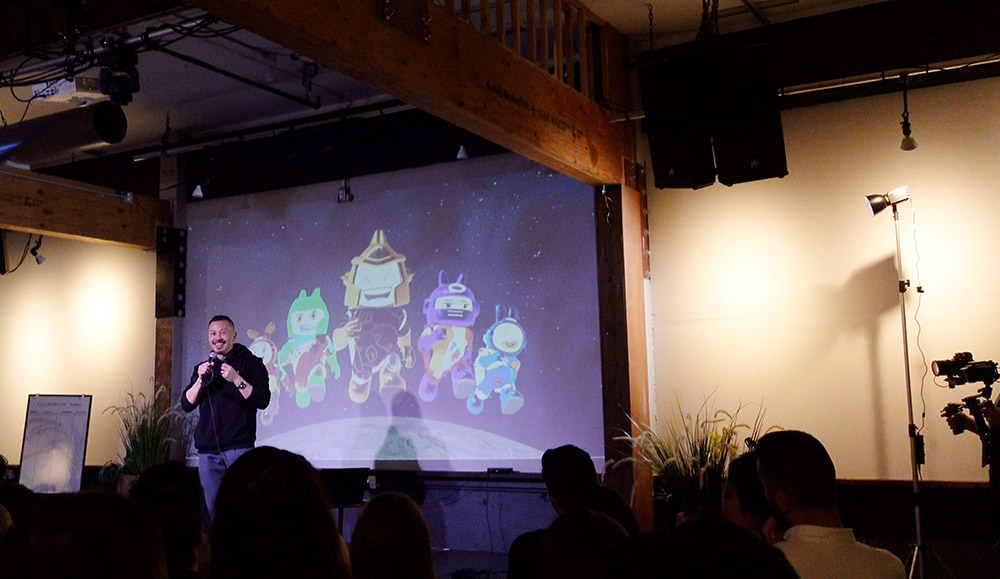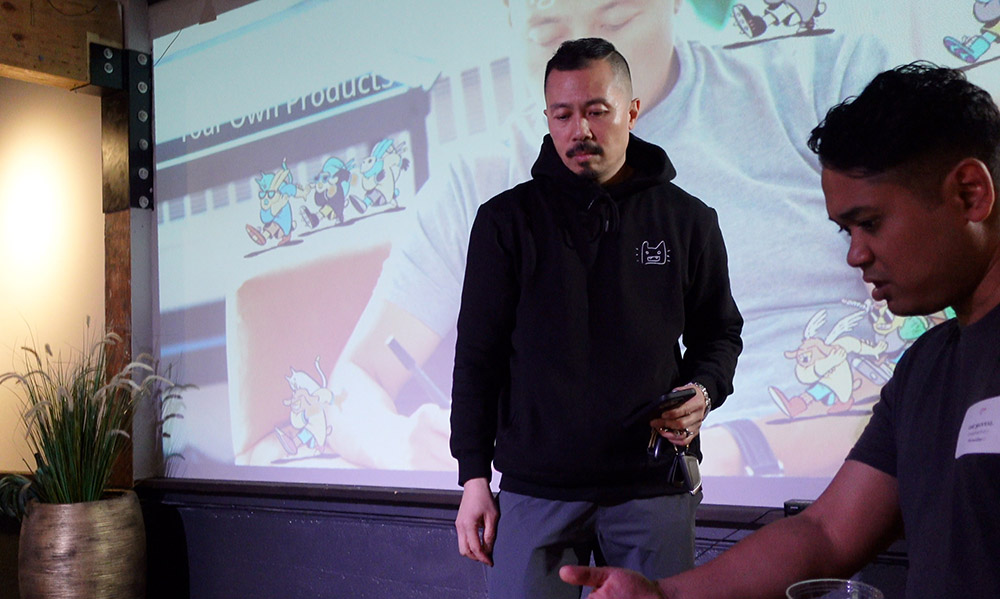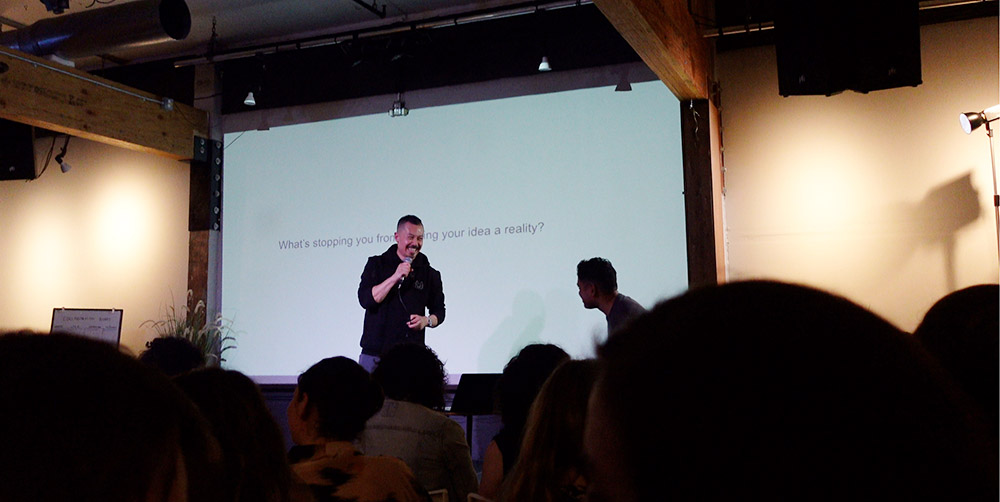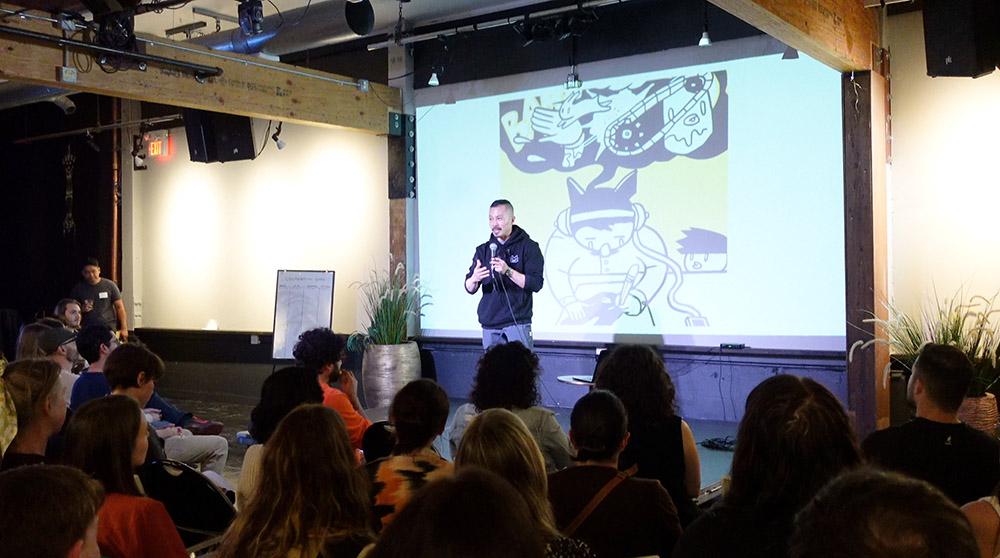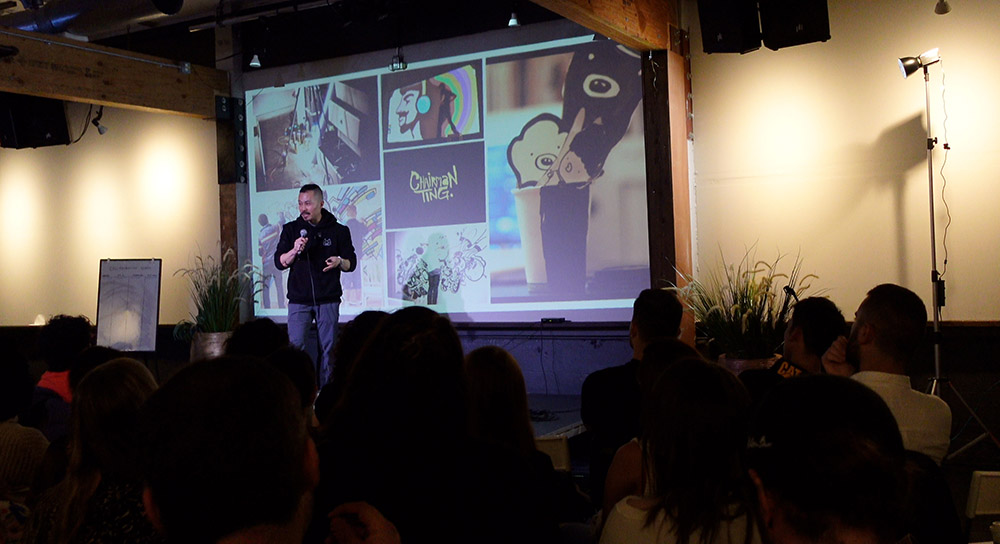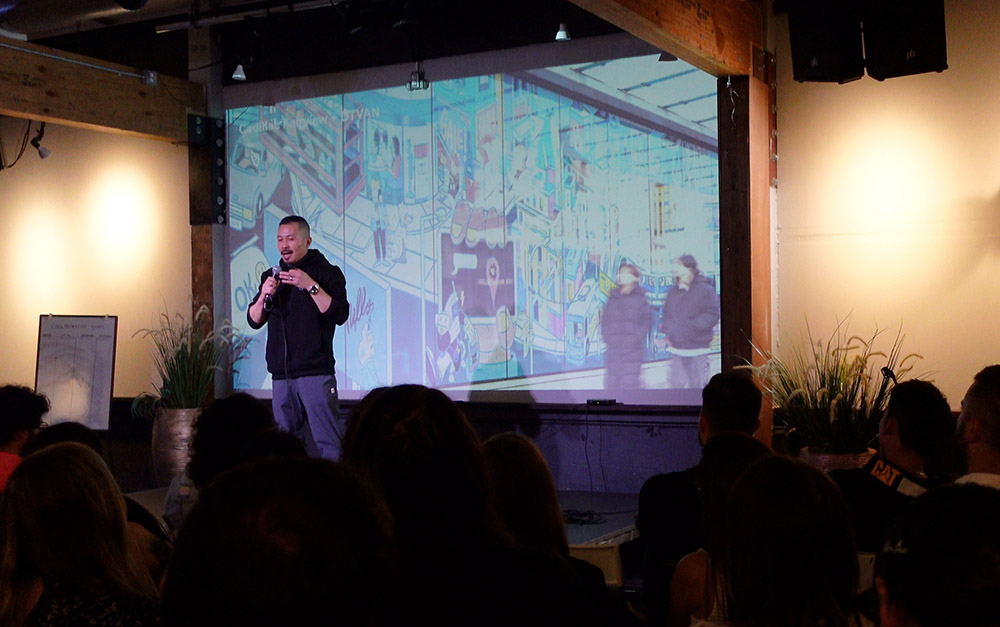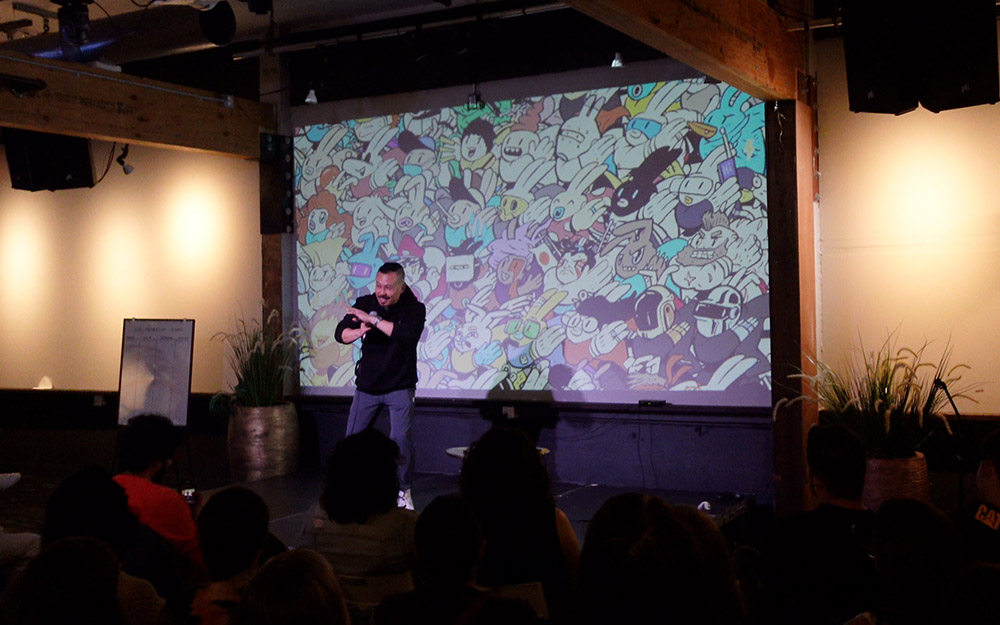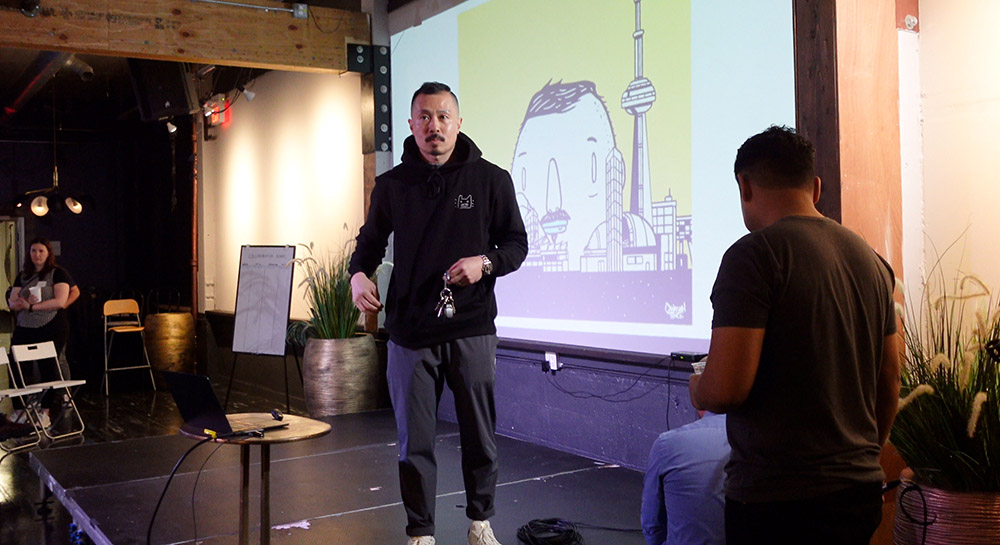Last month, I got an invite to do a talk for Creative Pulse in Vancouver to talk about my journey venturing from creative services to creating my own creative product. Preparing for my talk (45 min.) forced me to go back and trace my footsteps to see how I started my career as an advertising art director to starting my own studio and becoming an entrepreneur and artist and then into creating my own products (Billion Buns).
It took weeks for me to prepare and rehearse (well over a dozen times) to get it right for the event. I had several pivots and countless changes to my slides (over 130!) even with getting my studio assistant Lynol helping with the initial slide build. But honestly, I’m so thankful for this blog that I’ve consistently kept active for over 14 years! Because I was able to quickly revisit so many past projects, thoughts, and learnings that I would’ve forgotten otherwise.
Knowing that the event was close 100 attendees, I had an immense pressure to deliver and make sure my talk was of value. I wanted to make sure that everyone got the money’s worth and time to come and watch me blabber for an hour. So I tried my very best to craft a presentation to be as succinct, clear and engaging as possible. I ended up giving 7 tips as takeaways towards the end of my presentation.
Big thanks to the folks at Creative Pulse for the video!
Here are the photos taken by event photographer, Melissa Woo, (@Melisa.woo).
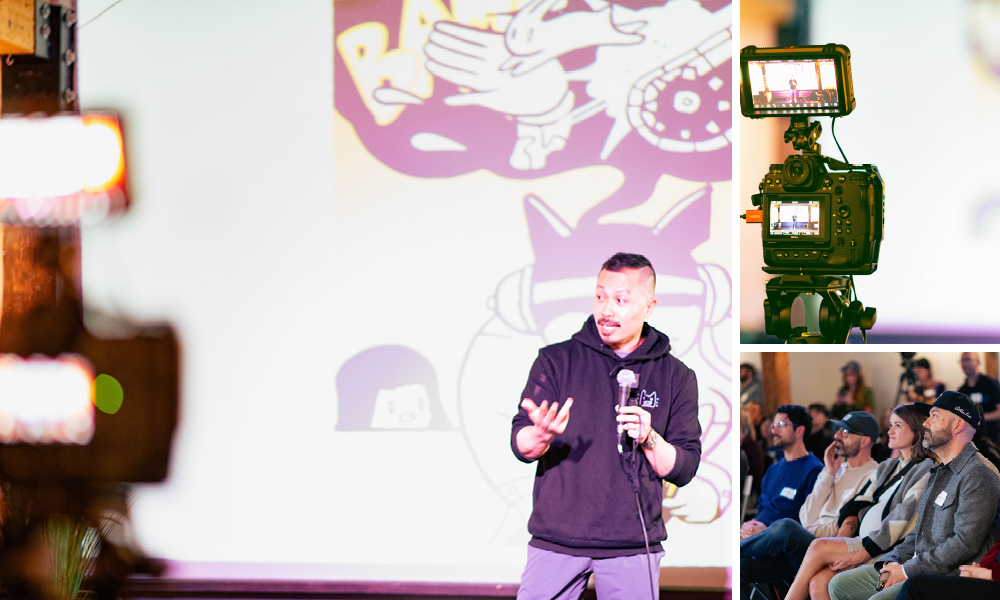
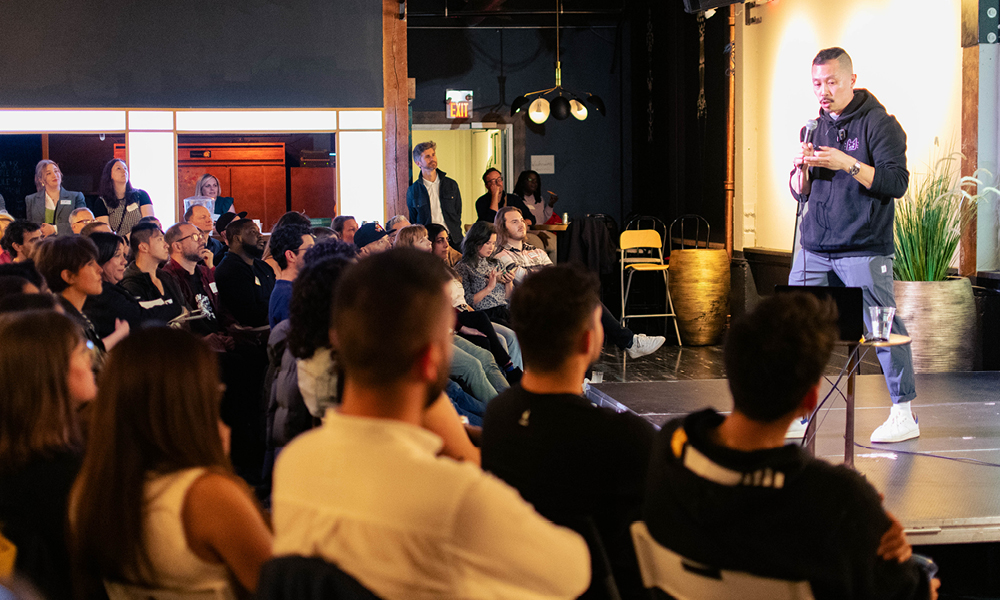
1. Don’t try to hit it out of the park the first time. Just be consistent and chip away at it with purpose, consistency and drive.
I learned this from my days working at Rethink. By far the best agency I’ve ever worked for. Chris Staples, one of the 3 founders gave me this piece of advice that has stuck with me ever since. He said one of the biggest mistakes that creatives do is try and hit a home run at first bat. What he suggests instead is to just put something on paper and get all the bad ideas out and once you land on a solid idea, improve upon it by increments.
The Japanese call it Kaizen. A Japanese term meaning change for the better or continuous improvement. This idea of continuous improvement underscores that small changes can lead to big future impacts.
2. Don’t be too precious about your ideas
Share your ideas with friends and family. They can potentially help improve your idea by poking holes into your idea, helping your idea become bullet proof over time. So many people I know will have all these amazing ideas but they keep it close to themselves, afraid of sharing, afraid that someone might steal their ideas. Cross pollination, collaboration and just the whole idea of vocalizing your thoughts helps ideas grow stronger. At least that’s how I work. I need to vocalize my ideas, I need to share my ideas with people I trust to act as my sounding board. I also learned this idea during my days at Rethink that great ideas can be your very first idea but you won’t know until you’ve done your hundredth idea. And this goes back to the whole notion of ‘don’t be too precious about your ideas’. Concepts get killed all the time but what excites me is that I get to come up with another idea. This allows you to peer review your ideas when you’re less precious ideas.
3. Create something that makes you happy first. And over time, an audience will find you. I honestly don’t have the magic answer but it could be a year or 20 years. But one thing for sure is that the work you do that makes you happy is already your instant reward.
I wanna share this short interview clip with Seth Rogen:
I’ve tried conforming my style to take on projects that I didn’t really align with what I do and in the end, I wasted weeks of my time creating something I wasn’t proud of or could share. And that was because I was trying to create something for a specific audience.
4. Build a team with a diverse skillset. I don’t know how to do 3D, animate, write and or code. Don’t try to do it all. You’ll burn out. For my Billion Buns project and Space Buns project, I had help with 3D work, animation, marketing, writing, coding and community building. I wouldn’t have been able to do any of this if I didn’t build myself a solid team that helped cover all the bases. And many unsung heroes like my studio production assistant, Lynol Lui who has been worked tirelessly behind the scenes helping with everything from social media posts to production work of all things Billon Buns.
5. Don’t be afraid to make pivots. If it doesn’t feel right, make the effort to change it. It’s never too late. There’s nothing worse than moving forward with the wrong idea and or product. One of the main reasons why our Billion Buns animated tv pitch took almost 2 years (and still going) is because we made countless pivots. We just had to make it right. And like I mentioned before, it could be your first idea, or your 100th idea but you wont’ know until you’ve done your 100th idea. Make it right. It’s okay to make changes.
6. Write down your ideas on paper. Something magical happens when you do that. When it’s written on paper, it becomes that much closer to reality vs just abstract ideas in your head. I learned this from Ian Grais, 1 of the 3 founders of Rethink. Ideas become more real. I think your brain can offload the idea and make room for new ones. Definitely not backed by science. Just my own opinion.
7. Leverage. We all have solid networks of friends and families. Use them. Leverage off of your contacts. There’s no shame in doing this. You’ll be surprised how many people are open to lending a hand, helping you bridge from one person to the other. My other passion is actually helping others connect with the right people. I do this so often that I’ve had friends tell me that I should start a recruitment agency. You just don’t know who will help you unlock you next big thing. All it takes is just one contact to open that one magical door that takes you from 0 – 100.
Back to my cousin Joe, the dentist from Alaska…of all people, turns out he also runs an investment group with over 50 high earning investors. Who knew? He shared the Billion Buns work to them and they all decided to go in on it.
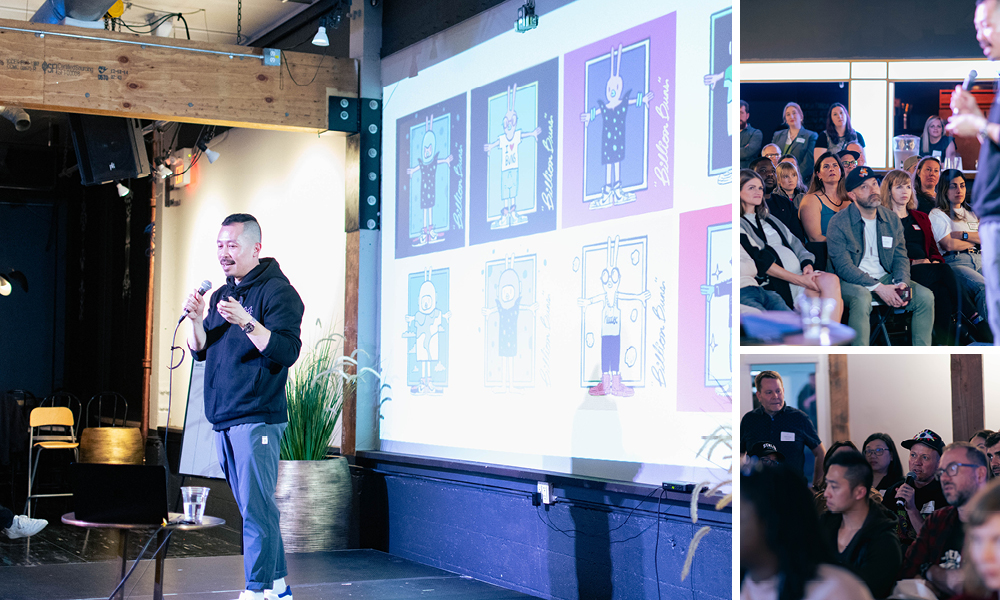
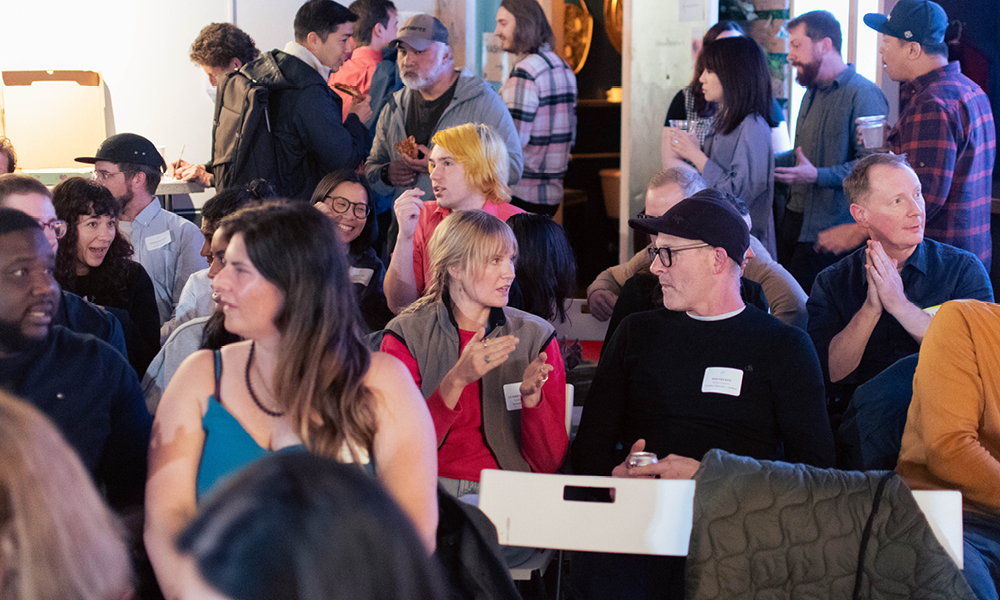
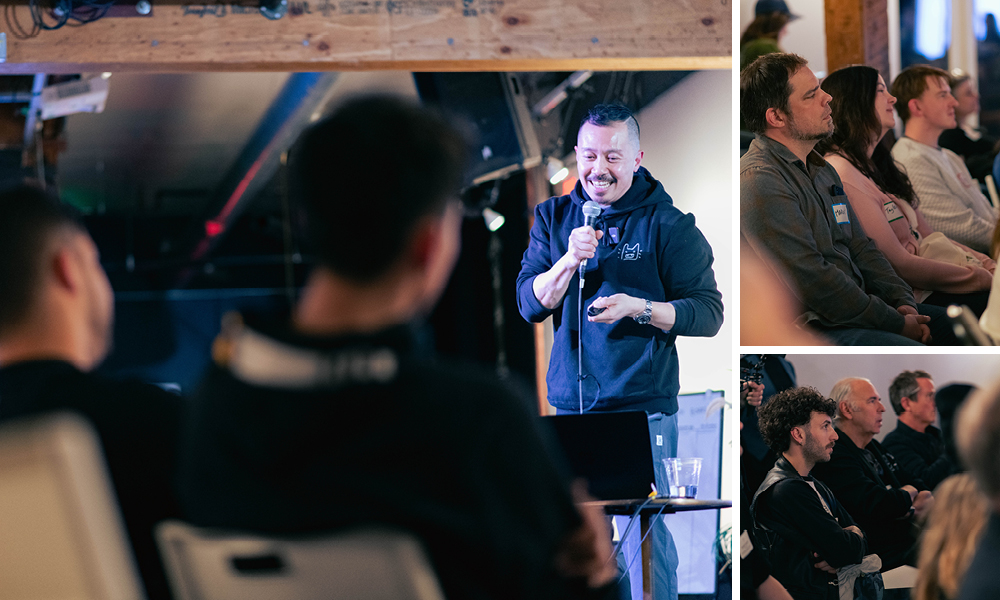
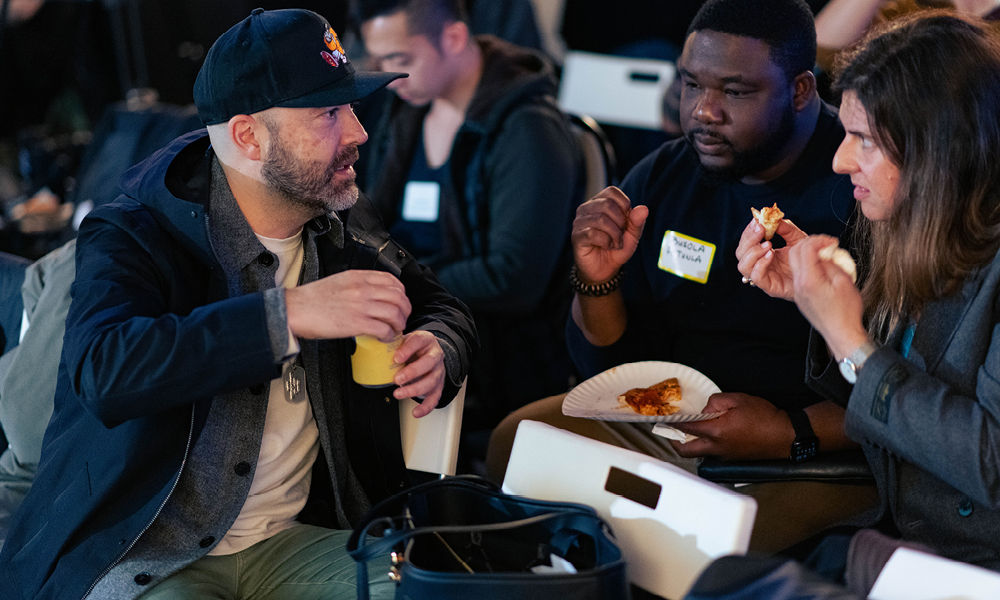
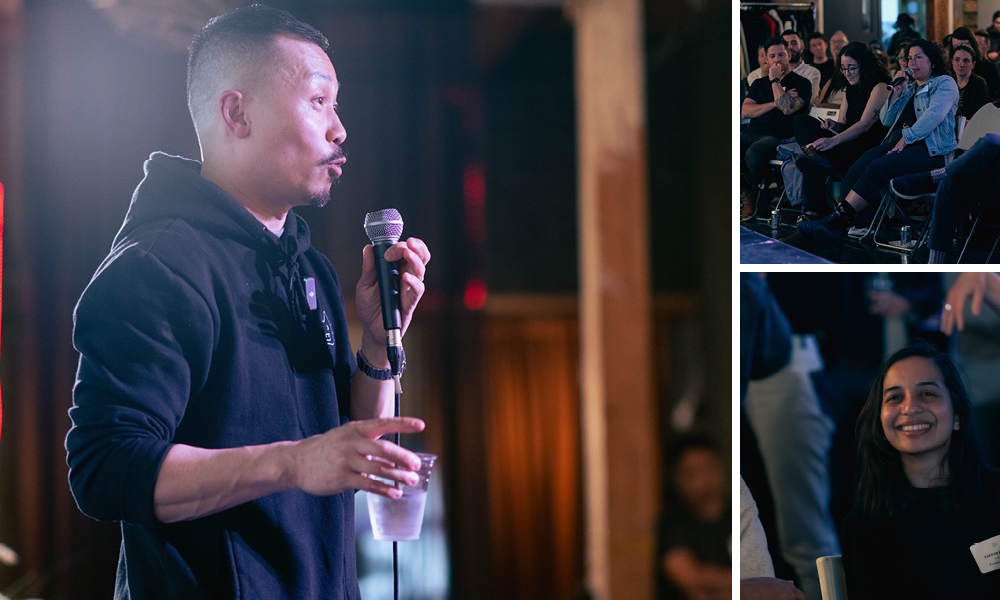
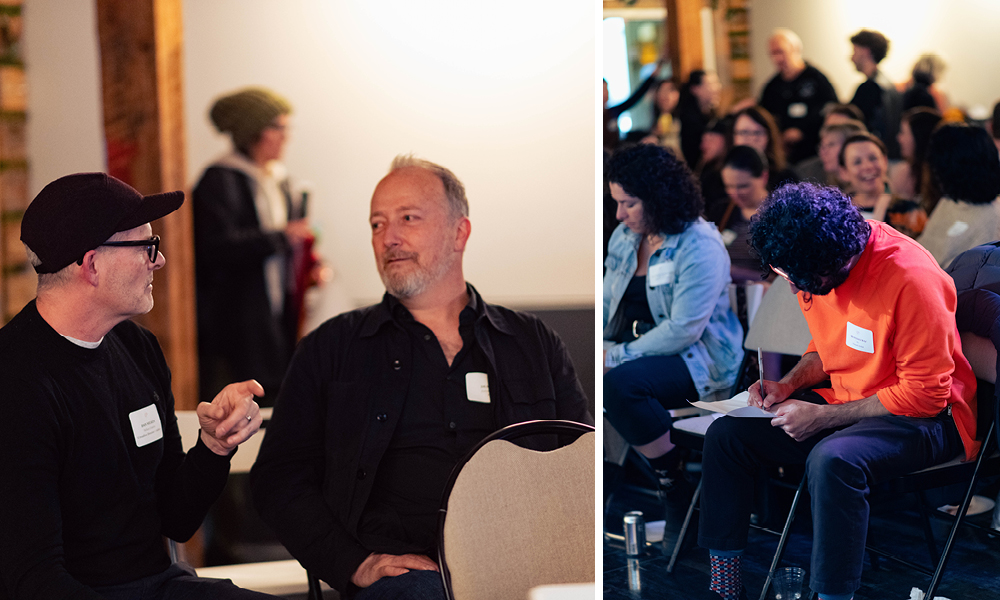
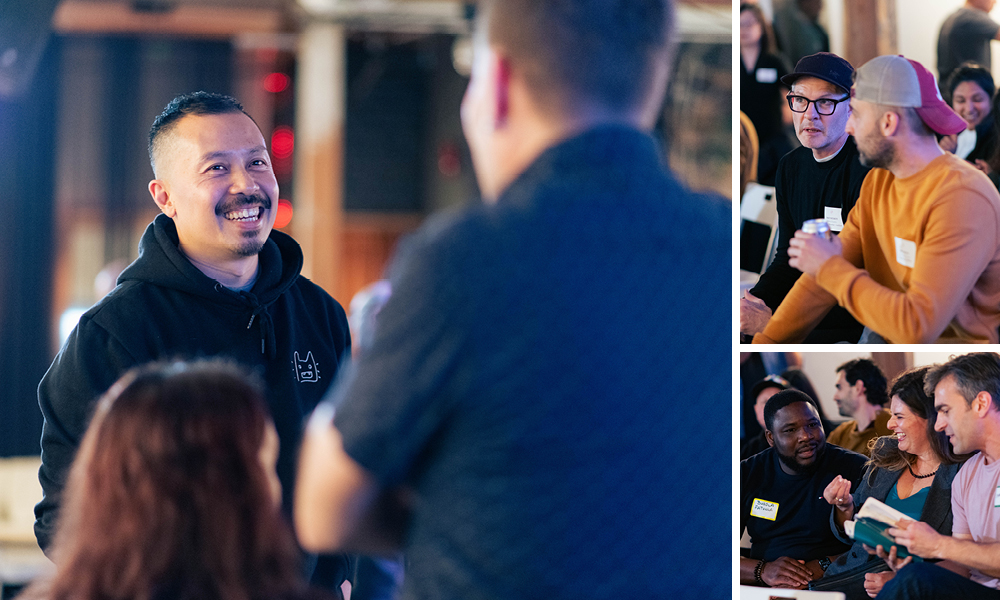
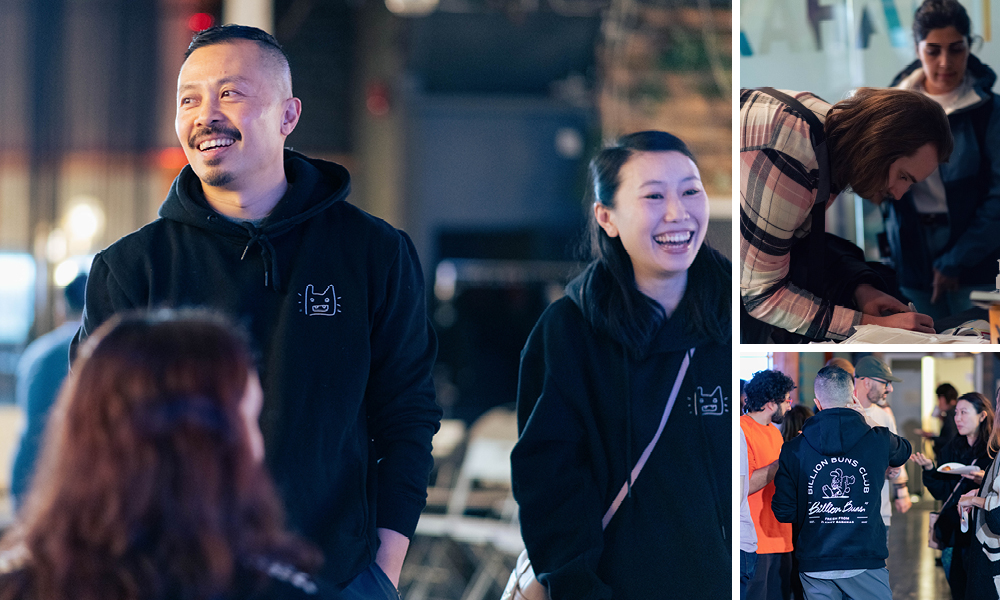
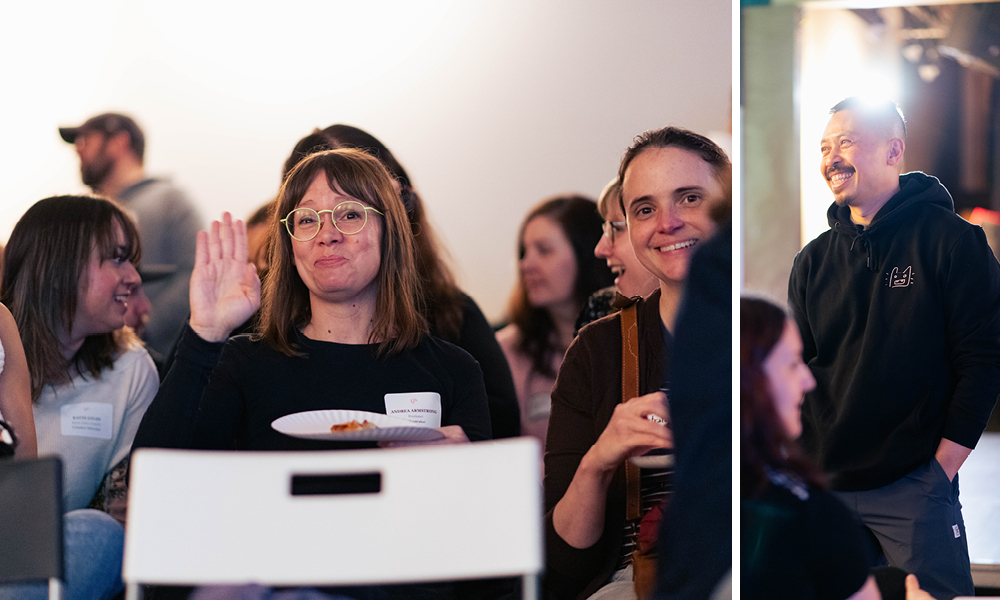
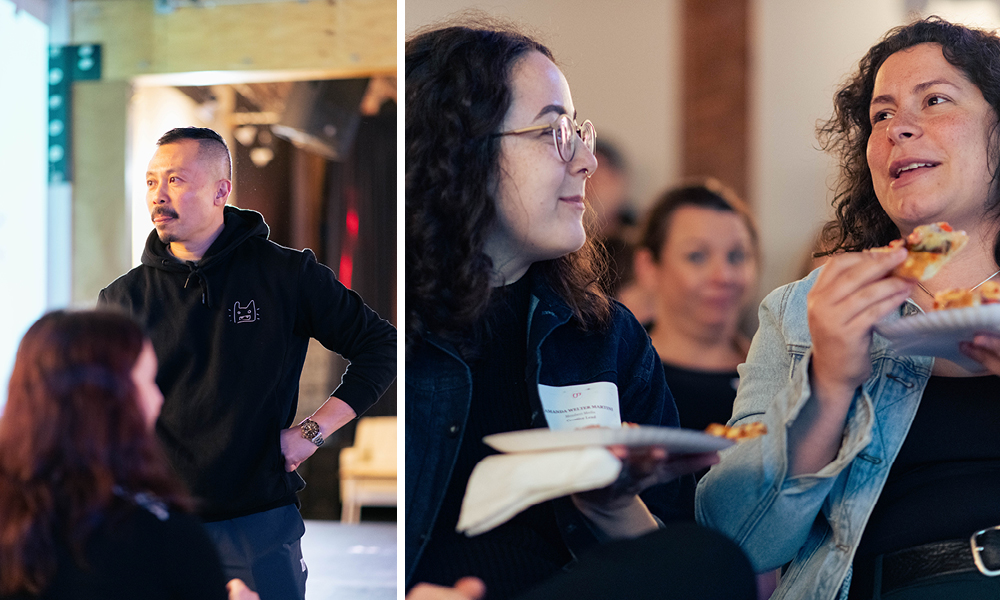
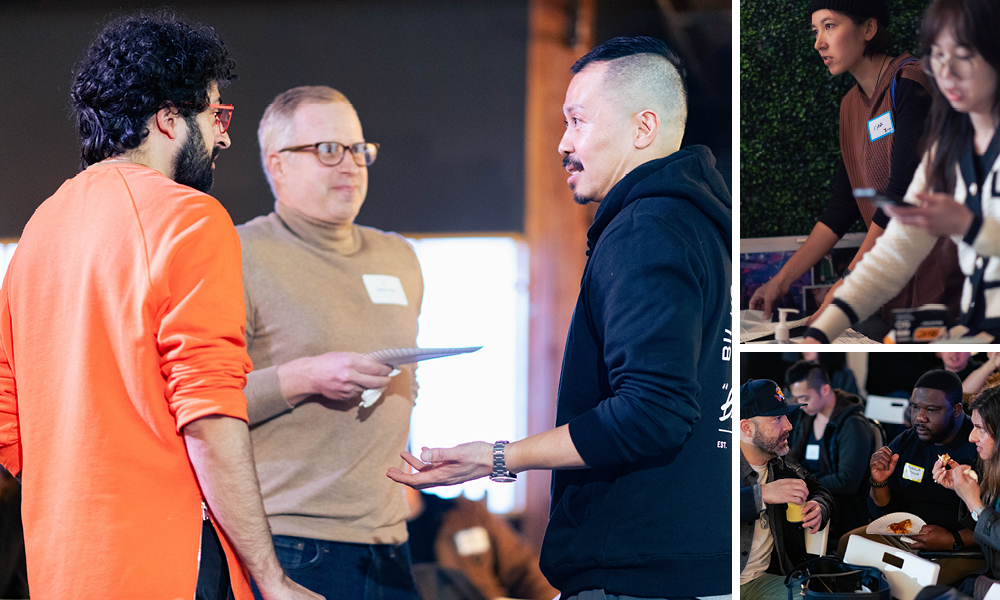
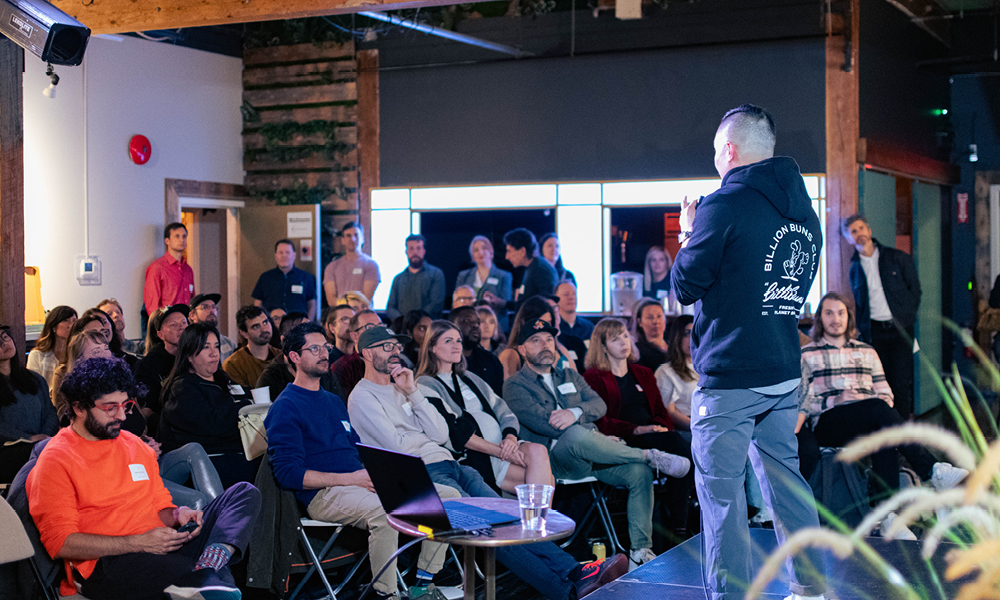
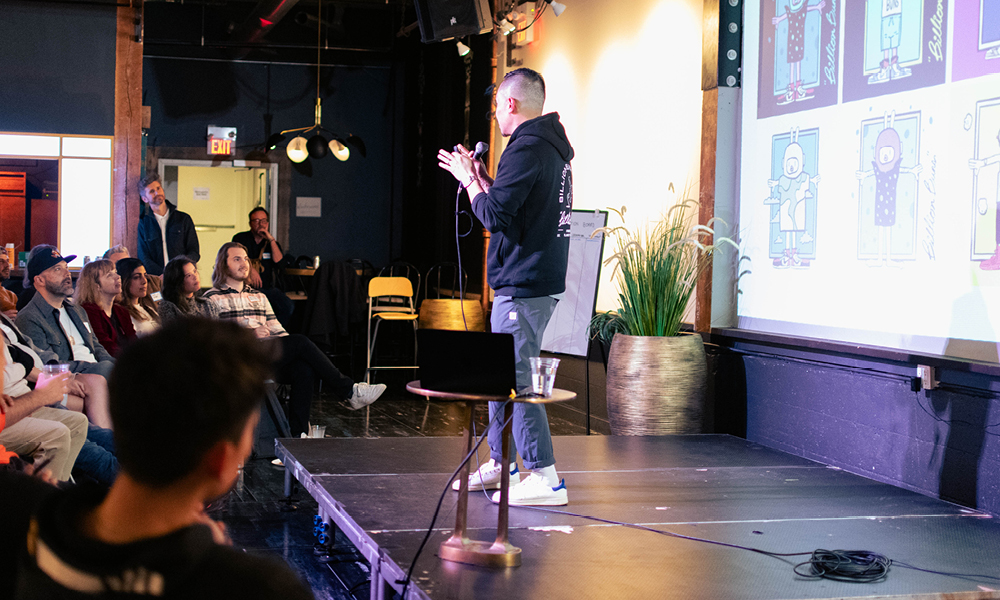
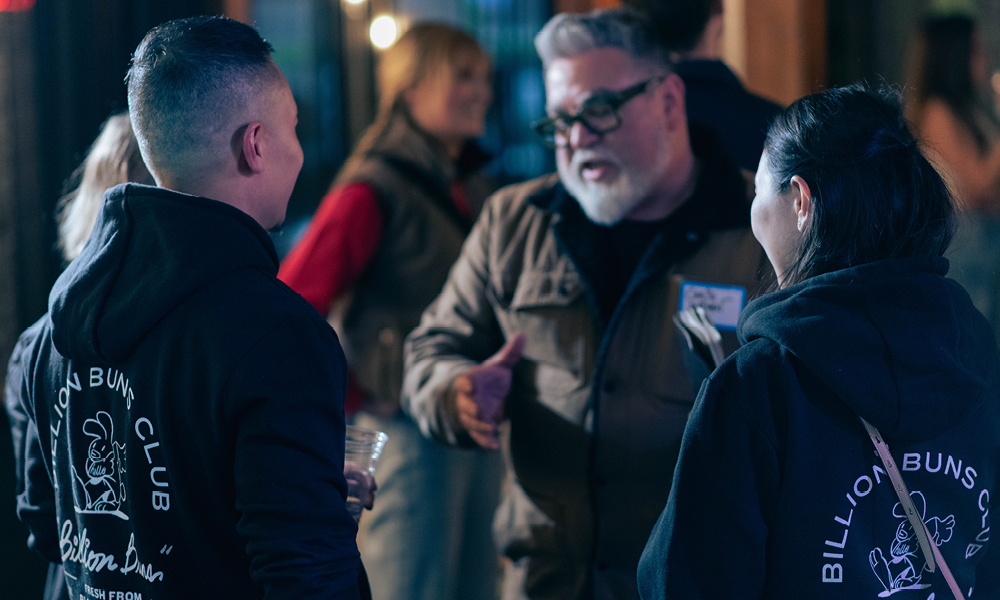
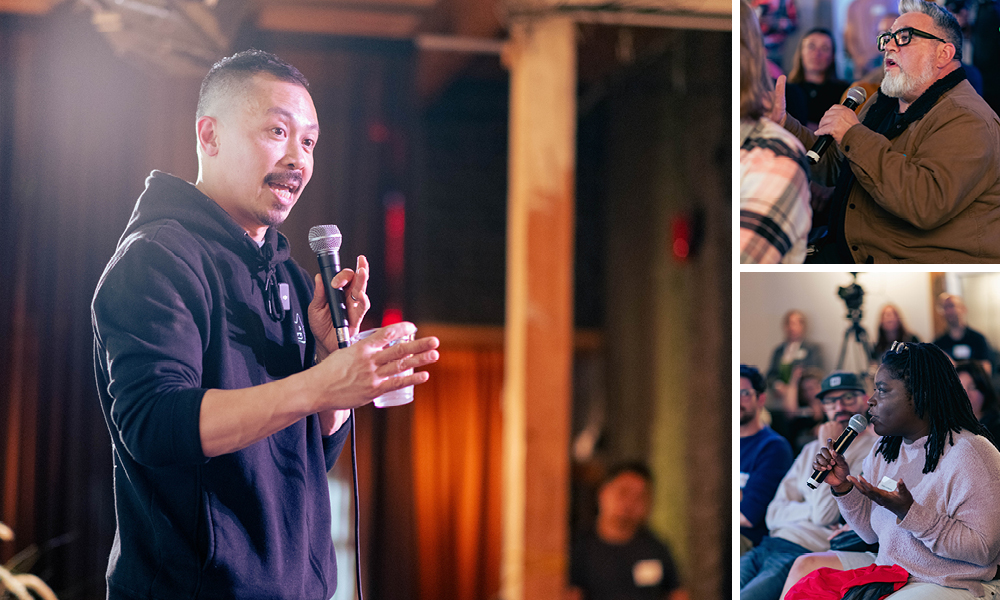
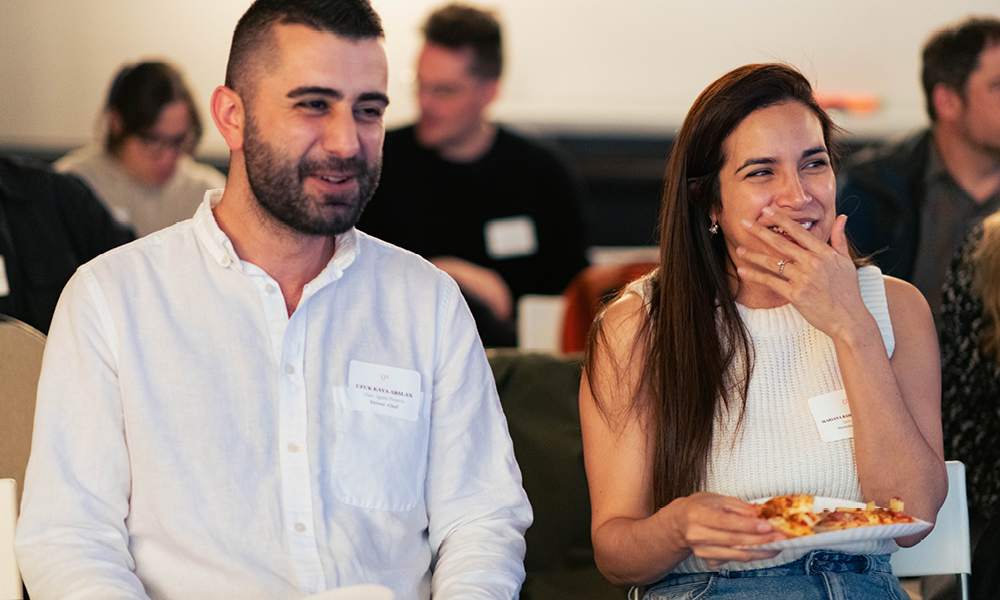
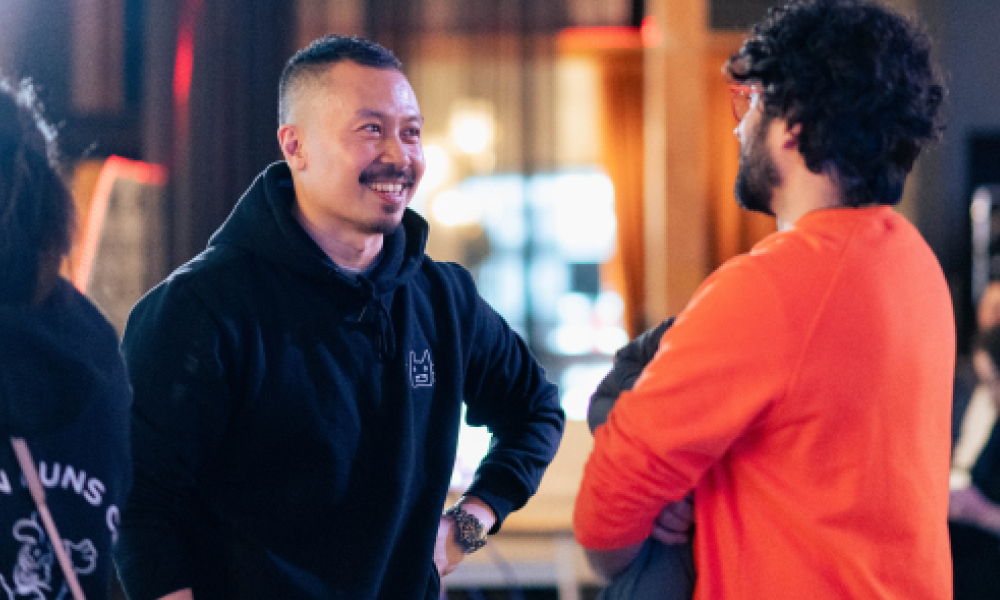
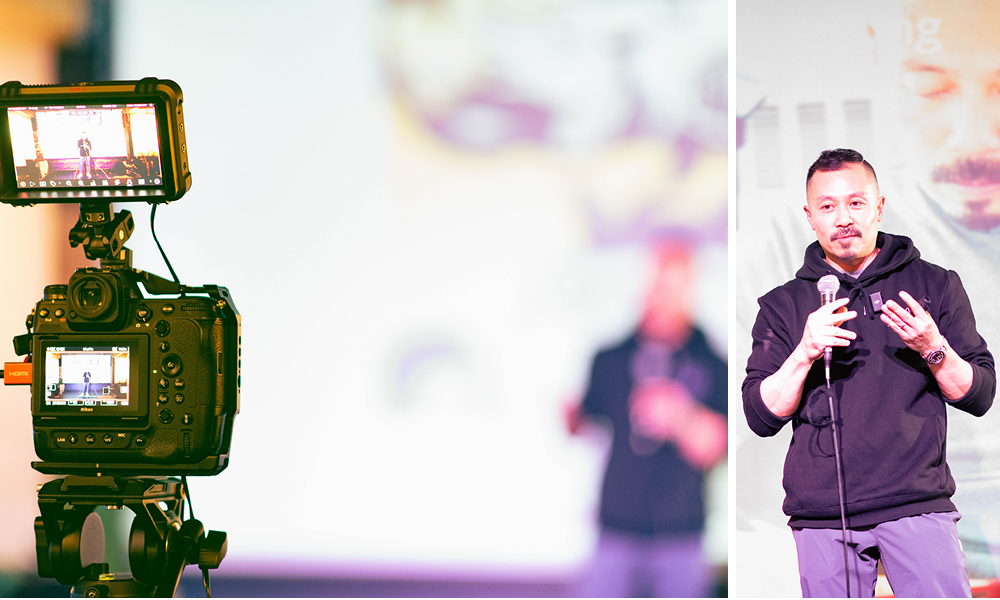
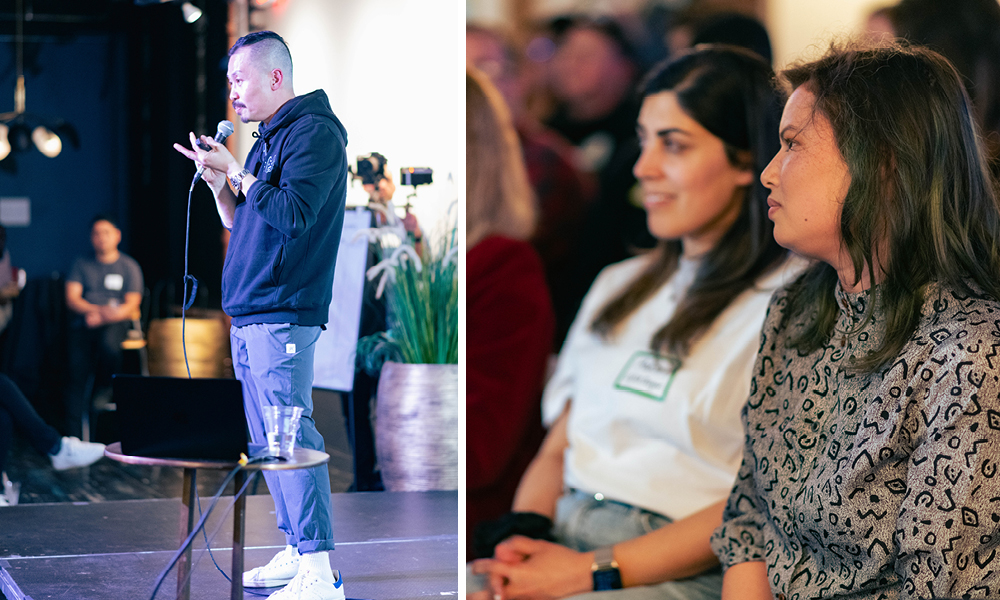
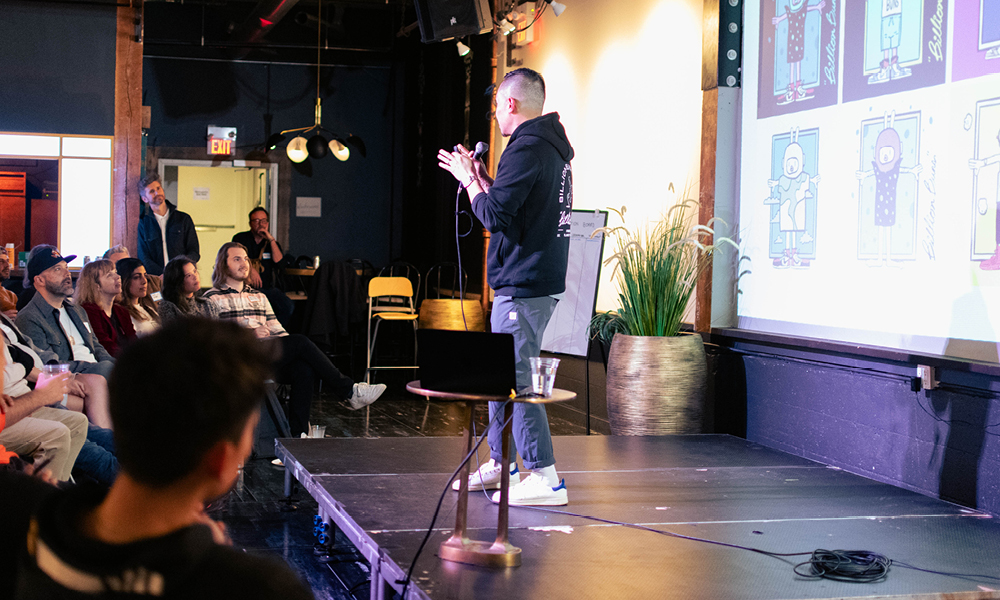
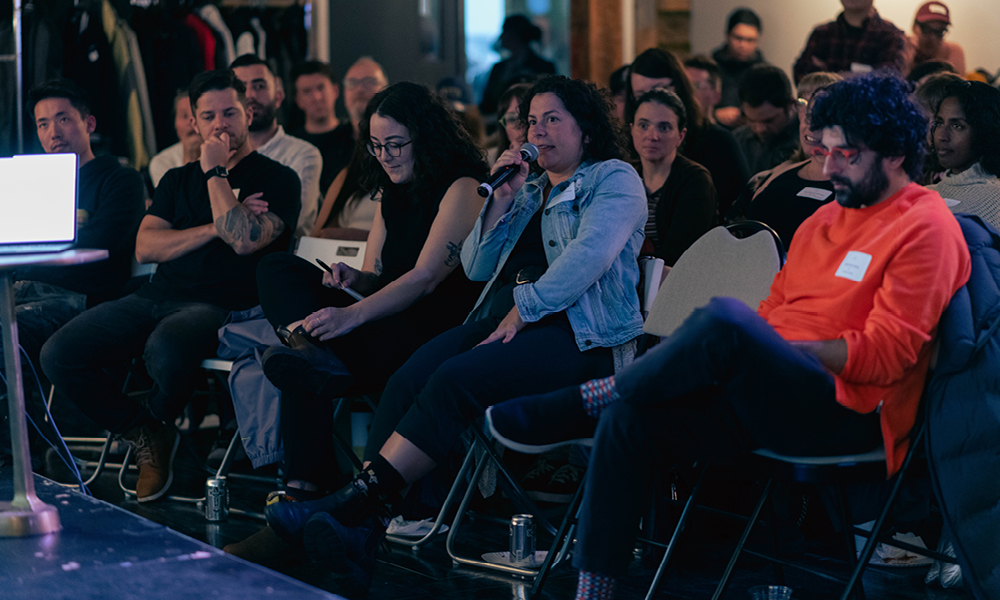
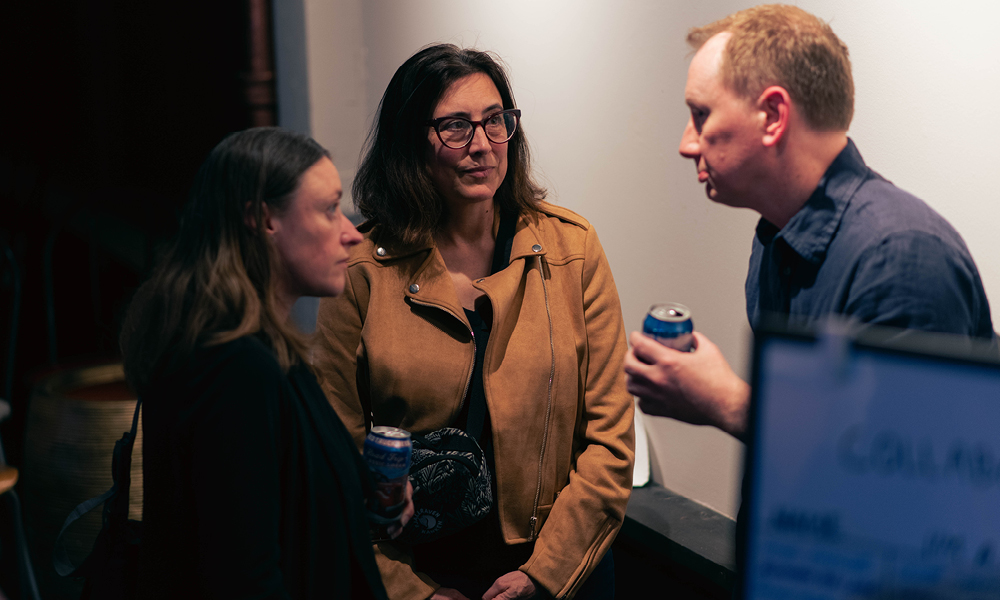
Here are a bunch of photos that my life partner in crime, Denise Cheung took:
